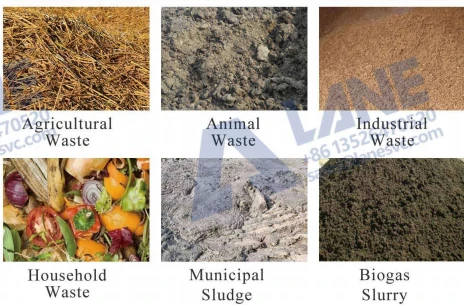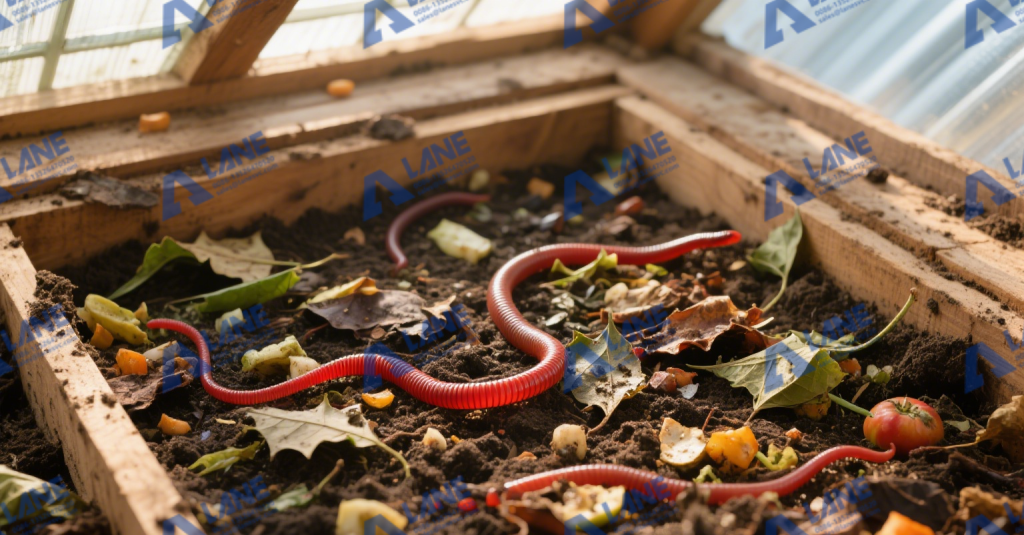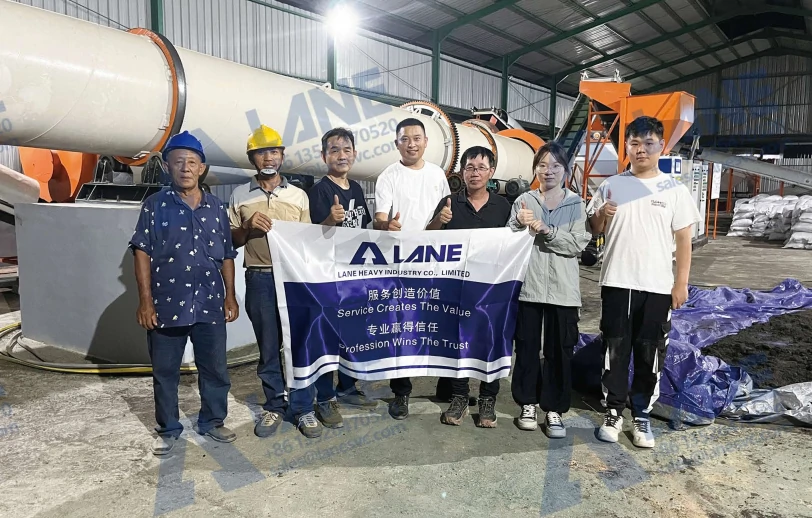Everyday our kitchens and gardens generate a stream of biological wastes. Some of those wastes are banana peels, coffee grounds, eggshells, fallen leaves, and grass clippings. Those wastes are sent to landfills as disposed materials. That biowaste is the raw material for creating rich, nutrient organic fertilizers. Organic fertilizers can be used for farms and gardens for plant nutrients. Making fertilizers out of waste is a cheap and profitable solution for making high quality organic fertilizers.
This article will walk you through the basics of transforming your household biowaste for organic fertilizer production.
What is Biowaste and Why Should We Care?
Biowaste or organic waste is any material that is biodegradable and comes from a plant or animal. This primarily includes:
Kitchen Scraps: Daily household wastes like fruit and vegetable peels, cores, and leftovers, coffee grounds, tea bags, and crushed eggshells.
Yard Waste: The waste from grass clippings, dried leaves, small branches, weeds and plant trimmings that we throw away after cleaning the gardens.
When those biowaste are sent to the landfill hey decomposes anaerobically. Which releases methane gas. Methane gas is a greenhouse gas which is far more damaging than carbon dioxide. By using the biowaste to make fertilizer will stop this from happening. That way we not only avoid these emissions but also create valuable nutrient for plants. We take nutrients from the earth to grow our food, then return those same nutrients back to the soil without causing emission. This is the core principle of using biowaste for organic fertilizer production.

The Benefits of Home-Produced Organic Fertilizer
Creating you own fertilizer from biowaste has its own benefits.
Soil Health: Unlike synthetic fertilizer which offer quick nutrient in exchange for soil pollution, organic fertilizer improves the overall structure of your soil. Organic fertilizers enhance moisture retention, promotes aeration and helps the growth of beneficial bacteria and fungi.
Plant Vitality: Plants fed with homemade compost are healthier, more resilient to pests and diseases. It produces more colorful flowers and sweet fruits.
Cost Savings: By creating your own fertilizer, you save money. Buying commercial fertilizer is not economical for large or medium farms. LANE heavy industry has a small organic fertilizer production line that can help you with create your own organic fertilizers.
Environmental Protection: You are reducing landfall waste, which saves the environment from methane emissions. Also organic fertilizers don’t have chemical runoff problem that synthetic fertilizers have.
Getting Started:
For a beginner, there are three primary and accessible methods for managing your biowaste for organic fertilizer production.
Cold Composting: Simply create a pile of biowaste in a corner of your yard and let nature take its course. This method takes 6 months to 2 years to produce finished compost.
Hot Composting: The is an active method and suitable for industrial and farmers who needs fertilizer regularly. In this method the compost piles are regularly turned to maintain a temperature of 130 to 160 °F or 60 to 70 °C. This process kills weed seeds and pathogens much faster and produce compost in 4 to 8 weeks.
Vermicomposting: This is ideal for apartments or small spaces. You release specialized worms in a bin to consume your kitchen scraps and produce a super-rich fertilizer called worm castings.

Scaling Up: How LANE Machinery Can Help
While having a simple backyard pile is great start but for larger gardens, small farms who wants to process materials more effectively. This is where small-scale organic production line becomes game changer. LANE heavy industry produces small scale organic production line.
For a small-scale operation, LANE crawler compost turner is absolutely necessary. This compost turner is equipped with water spaying and with powerful hydraulic engine that works as crusher for the biowaste materials. For hot composting turning the pile is the most labor-intensive part. LANE crawler compost turner solves this problem. They fluff the material, reintroduce oxygen, and help regulate temperature and moisture, turning a week-long manual job into a quick, efficient task
The LANE small-scale organic fertilizer production line also consists of dynamic batching system, crusher, mixer, granulator, polishing machine, dryer, cooler, screening machine, automatic packaging machine
To the farmers or gardeners who wants to scale up and commercially produce fertilizers for selling can easily make granular organic fertilizer with this small-scale organic fertilizer production line by LANE.
Using biowaste for organic fertilizer production is more than just a gardening technique. It’s about reducing waste, building healthy soil system and proving nutrient to the plants. You can start with a single bin on your balcony and scale up with machinery and sell the fertilizers for commercial profit while helping the environment.

For more details, please feel free to contact us.
Henan Lane Heavy Industry Machinery Technology Co., Ltd.
Email: sales@lanesvc.com
Contact number: +86 13526470520
Whatsapp: +86 13526470520